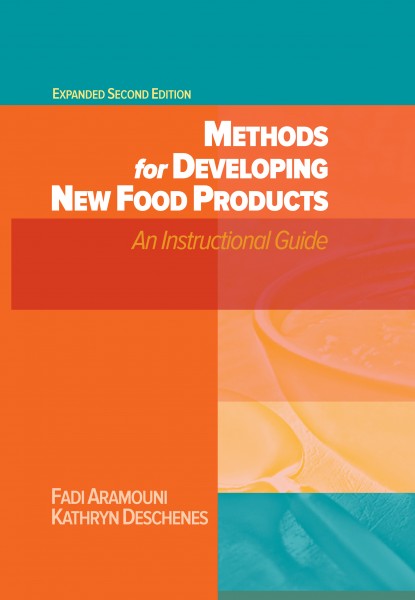“When consumers—and, in many cases, retailers—began inquiries about sustainability initiatives, some thought it would be a short-lived trend,” says Rasma Zvaners, vice president of regulatory and technical services at the American Bakers Association (ABA), Washington, D.C. “It was not.”
According to Maru/Matchbox, Toronto, sustainable products that were once considered premium are being pushed into the mainstream as consumers become more invested in the environmental and humanitarian implications of their food choices.
Unsurprisingly, millennials are largely driving this trend. As noted in its “The Future of Food: Are You Ready for Millennials?” report, Maru/Matchbox found millennials not only demand sustainable attributes like non-GMO (61 percent of millennials versus 46 percent of those over age 50), but they’re also willing to pay for it: 68 percent of millennials are willing to pay more for organic foods, and 66 percent are willing to pay more for sustainable foods.
Notes Zvaners: “Consumers are becoming more aware of sustainable practices and asking of their preferred brands such things as: Do your ingredients come from growers using sustainable agricultural practices? Where are your ingredients sourced? Are ethical work practices being used by your suppliers abroad? Is your company aiming to use fewer natural resources?”
To help meet the desire for increased sustainability, ABA has engaged with the EPA on a voluntary Energy Star initiative for commercial bakeries. The association charged its members to take the Energy Star Challenge and decrease their energy intensity by 10 percent in five years or less; today, the commercial baking industry has the most individual facilities taking this challenge.
“All organizations, especially snack and bakery companies across the supply chain, need to realize that sustainability is not just a desired activity, but a necessary strategy,” says Steve French, managing partner, Natural Marketing Institute (NMI), Harleysville, PA. “Demand for product transparency is clearly on the rise, and brands that fulfill this demand by providing comprehensive information from sourcing, manufacturing and social cause efforts are positioned to gain favor.”
The supply chain
For Singapore-based Olam Cocoa, incorporating sustainable practices into the supply chain has benefits for farmers as well as the environment. Specifically, the company’s Olam Livelihood Charter formalizes its commitment to playing an ongoing leadership role in supporting smallholder farms worldwide, touching on finance, improved yield, labor practices, market access, quality, traceability, social investment and environmental impact. This suite of 15 programs reached 20,800 new farmers in 2016, bringing the total number of farmers impacted by these programs to nearly 130,000, notes Alistair Davis, head of cocoa sustainability.
Olam communicates this and other sustainability initiatives through the Olam Farmer Information System (OFIS), which collects and analyzes data at the farm level for the monitoring, evaluation and development of sustainability projects for individual farms and farmer communities. This also provides complete traceability for Olam’s customers.
Stateside, the United Soybean Board, the American Soybean Association, the U.S. Soybean Export Council and state soybean boards have developed the U.S. Soybean Sustainability Assurance Protocol, which takes into account everything from water conservation to energy use. It also ensures that U.S. soybean farmers are continuously implementing new production practices that improve their sustainability.
Tyson Foods, Springdale, AR, is meeting the demand for more sustainable ingredients by reducing antibiotics usage in its broiler chicken supply chain. But with trends and certifications in a constant state of transition when it comes to clean label, Tyson makes an extra effort to communicate its sustainability initiatives to its customers. “We provide our customers with educational information around key poultry claims such as ‘chicken raised without antibiotics,’ so they can make informed decisions about how they communicate to their customers,” says Johnny Hughes, senior vice president of foodservice sales.
At DuPont Nutrition & Health, New Century, KS, sourcing of raw materials represents more than 50 percent of the company’s total carbon footprint, so “sustainable sourcing is therefore a key priority,” says Mikkel Thrane, sustainability leader. One way DuPont ensures a more sustainable supply chain is by sourcing RSPO-certified palm oil. DuPont’s sustainability team works with customer-facing teams to help communicate this and other initiatives via webinars and face-to-face meetings, and by providing materials like storyboards. “This gives them the necessary knowledge to feel comfortable talking about sustainability with our customers,” he says.
Bakers and snack manufacturers can also reexamine their packaging to see if they can reduce any of their primary or secondary packing materials, says Bryan Sinicrope, vice president of sales and marketing, A-B-C Packaging Machine Corp., Tarpon Springs, FL. “They can also identify any current packaging materials that can be replaced with recyclable materials,” he adds. “They could consider replacing traditional plastic packaging with plant-based plastics.”
To help its customers be as sustainable as possible when it comes to their packaging, A-B-C has designed machines that meet its customers’ needs, including a palletizer for products packed in reusable totes, a pallet stacker and dispenser designed to accommodate reusable pallets, and case erectors and sealers that accommodate variations inherent in corrugated materials with high recycled content.
Operational sustainability
Eco-friendly initiatives that reduce the carbon footprint of a facility are a vital piece of the sustainability puzzle. And, as Thrane points out, it’s also the area where companies can exert the greatest degree of control.
At Flowers Foods, Thomasville, GA, the Smart Saves initiative focuses on reducing compressed air leaks, which Margaret Ann Marsh, vice president of sustainability and environmental, says can waste as much as 20 to 30 percent of a compressor’s output. “We also participate in the EPA’s Energy Star programs to recognize our bakeries for high achievements in energy reduction,” she says. “In 2016, eight Flowers bakeries achieved Energy Star Certification, and 45 Flowers bakeries registered for the Energy Star Challenge.”
Some initiatives that have helped Flowers Foods’ facilities minimize their carbon footprint have included installing LED lights with built-in occupancy sensors—yielding an energy savings of nearly 70 percent, notes Marsh—and finding ways to reuse waste heat for hot water, comfort heating and other processes. “Recently, one of our bakeries installed a heat-recovery system that captures waste heat from the oxidizer exhaust to heat the shipping area and hot water tank,” she explains. This system saves thousands of dollars on gas costs. Flowers gets the word out—and keeps itself accountable—with annual sustainability reports published on its website.
ARYZTA, LLC, Los Angeles, also prioritizes reducing its energy and water use, as well as diverting as much waste as possible from the landfill. Its goal is a 10 percent reduction in energy, water and greenhouse gas intensity over five years, and to achieve zero waste to landfill in bakeries where it’s possible. Currently, 11 of its North American bakeries have achieved zero waste to landfill, and its entire network has achieved an 85 percent total diversion of waste to date. Customer teams are equipped with an annual sustainability report and a short video to help inform customers of these and other initiatives.
“In the end, eco-consciousness will continue to deepen as consumers find it easier and more important to take action,” says French. “Organizations that facilitate that behavior will be rewarded with consumers who seek to align their purchases with their personal values, morals, ethics and belief systems.”











